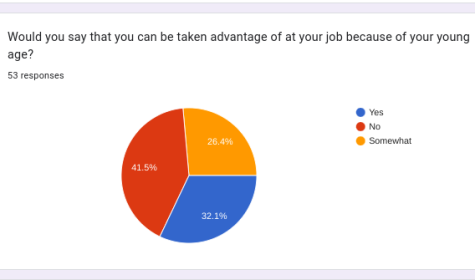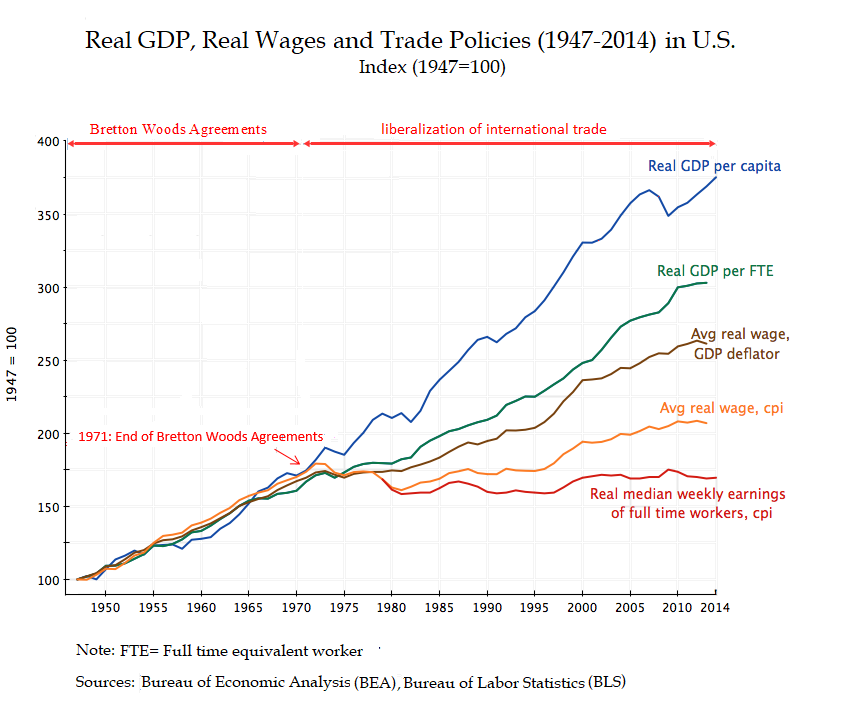Quiet Quitting Demonstrates Young Workers’ Pessimism
Several young people may be apprehensive about their future employment
Since the 1970s, productivity and worker pay in the United States have apparently become increasingly separated.
December 13, 2022
A trend among young people that has been standing out prominently on social media, especially the platform TikTok, is “quiet quitting.” This concept involves an employee putting no more effort into their work than absolutely necessary.
A synonym for this idea is “acting your wage,” where individuals will place the amount of energy into their work that reflects the amount they are getting paid.
Some believe that the trend is a result of many employees reflecting on and reevaluating their occupations following the COVID-19 pandemic.
According to Insider, the trend appeared to have originated from a TikTok video posted in March 2022 by Generation X career coach and YouTuber Brian Creely. He referred to an Insider headline that read, “Fed up with long hours, many employees have quietly decided to take it easy at work rather than quit their jobs.”
One reason this phenomenon may be occurring is that citizens in the working world are realizing that they are simply not being paid enough to do their job.
A popular graph obtained via Wikimedia Commons demonstrates that since around the early 1970s and the conclusion of the Bretton Woods Agreements (which intended to create an international monetary system that would encourage economic growth), there has been a remarkable disconnect between worker productivity and wages. Although output has steadily increased over time, pay has visibly remained stagnant overall.
As a result, employees may see this diagram or perceive it through real life experiences and become demotivated at work. Young workers could grow apathetic early in their careers and cause a considerable mass decrease in productivity in the near future.
Many believe that companies are exploiting employees’ inability to say “no,” especially younger employees. Consequently, jobholders may become overworked and lose hope in their occupation.

53 Liberty students responded to a survey that contained questions concerning their employment experience.
As one would expect, the majority of those who answered to the survey were seniors at 41.5%, followed by juniors at 26.4%, sophomores at 18.9% and freshmen at 13.2%.
About half of the students polled said they worked at either fast food or retail jobs. 15.1% stated that they worked in service, while the rest said they were employed in one of an assortment of different job types.
Just over half of those surveyed said that they were not currently employed at their first job. Most of these people who claimed that they had been employed two or more times expressed that their work experiences have been overall somewhat positive.
67.9% of the students said they generally enjoy their current job, and 69.8% of the students stated that their bosses/higher-ups were agreeable and reasonable.
However, when the individuals were asked if they can be taken advantage of at their place of work due to their young age, a fairly large margin of 32.1% answered “yes” and 26.4% said “somewhat.” On the other hand, 41.5% answered “no” to this question.
The final query of the study was what each student’s biggest concern was as they looked to enter the working world. Some examples included many conveying the fear of not finding happiness in their profession as well as working too many hours.
Senior Vianca Malave-Torres, who works in service, believes that she can be manipulated at her job because of her adolescence.
“My biggest concern was trying to get respect as a worker at such a young age among people who are significantly older, have more experience than I do and sometimes forget they started out like me,” noted Malave-Torres.
One student concisely responded that their greatest concern would be “Karens.” Although this reply sounds facetious, it precisely asserts the prominent issue of workers having to deal with difficult customers in the current service climate.
Junior Payton Grotewiel remarked that her biggest worry is “not getting paid enough or having to work long hours and not being able to get out of it.”
Although quiet quitting has been a rather widespread issue, a great deal of young people are determined to work hard and make the most of their job experiences. Still, many have uncertainties and anxieties in regards to the workforce and how they will navigate it. As individuals undergo their learning experience in employment and process it, they can have the possibility of discovering what they truly want to pursue.



















